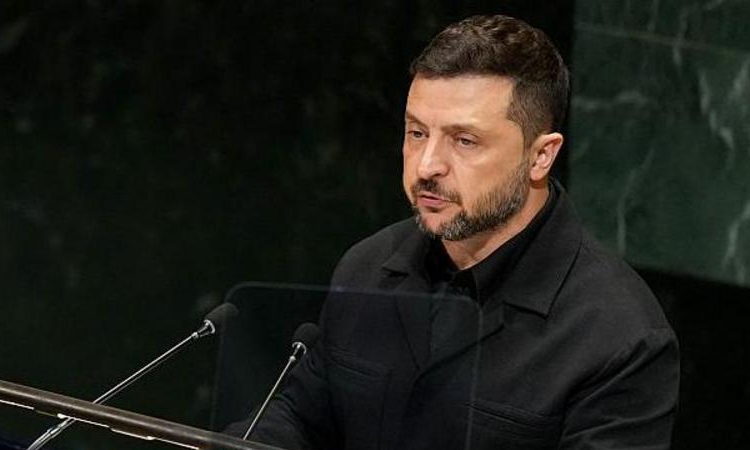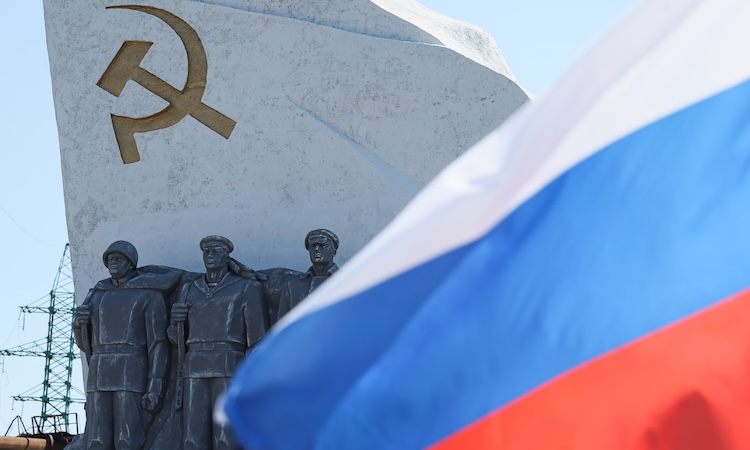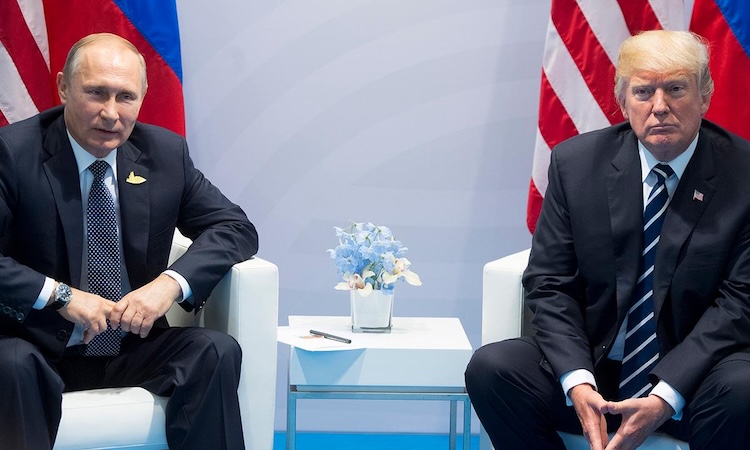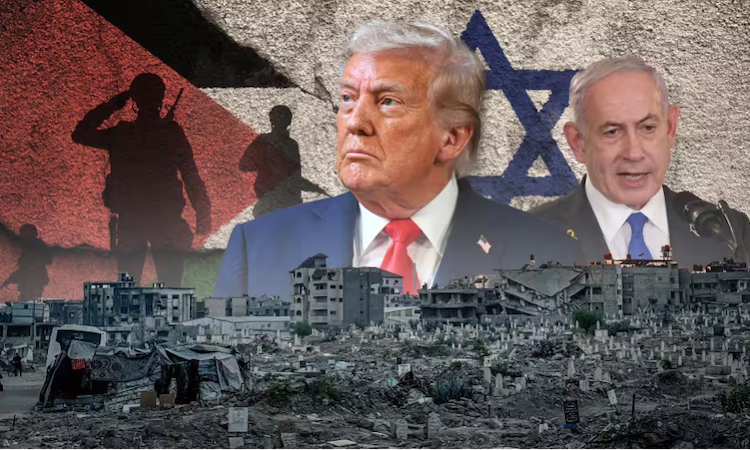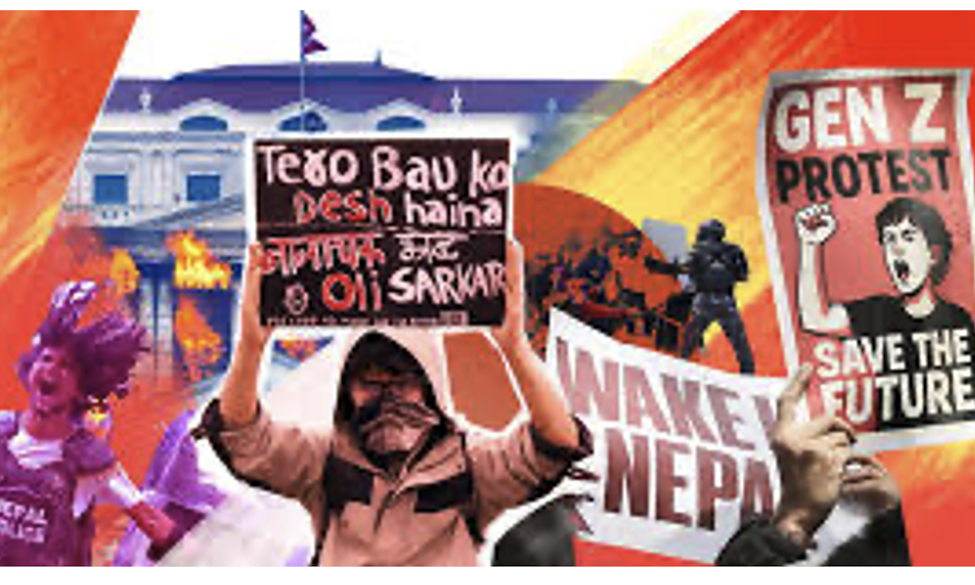Scraping the bottom of the Russophobe barrel, the 2016 Eurovision Song Contest media spectacular culminated in the triumph of a song whose lack of any musical merit was compensated for by its poisonously anti-Soviet lyrics, belted out by a lady calling herself Jamala.
Whilst coyly avoiding naming names, ‘1944’ is clearly about events in Soviet Crimea in that year. After the liberation of Crimea by the Red Army and partisans on 9 May 1944, the majority of the Crimean Tatar population was transferred to Uzbekistan and Kazkhstan. This compulsory mass transfer is routinely presented as a ‘Stalinist crime’, making ‘Stalin as bad as Hitler’.
The song milks this prejudice for all its worth, with the singer (herself a Tatar born in Kyrgyzstan) wailing incoherently: “When strangers are coming, they come to your house, they kill you all and say ‘We’re not guilty’. Where is your mind? Humanity is crying. You think you are gods. But people are dying. Do not swallow my soul. Our souls.”
In case anyone failed to see where the song is going, Jamala has dropped some clues in interviews, confiding that: “That terrible year changed forever the life of one fragile woman, my great-grandmother Nazylkhan. Her life was never the same.” One gathers from this that her great-grandmother was among those transferred.
Tatar collaboration with Nazi war crimes
To understand what really happened in 1944, it is necessary to glance at the role played by many Crimean Tatars in the course of the war. On 3 January 1942, as the Nazis closed in on Sevastopol, the chairman of the Tatar Committee, Jaljala Abdurashidova, gave a speech in Simferopol which included the following eulogy for fascism:
“We are honoured to have the opportunity to fight under the leadership of the führer Adolf Hitler – the greatest son of the German people … Our names later will be honoured along with names of those who advocated the liberation of oppressed peoples.”
In July of that year, Sevastopol fell to the Nazis, ending a siege that had cost the lives of 156,000 Red Army soldiers. Shamefully, an estimated 20,000 conscripted Tatars fled the Red Army as it retreated.
Field Marshal Erich von Manstein testified: “The majority of the Tatar population of the Crimea was set up very friendly to us. We even managed to form Tatar armed battalions of self-defence, whose task was to protect their villages from attacks of Partisans who were hiding in the Yayla mountains.”
This tallies with the account from the other side, from the commander of the fifth partisan region, Krasnikov, who explained: “From the very first days of arrival, Germans used the support of Tatar nationalists. Trying to gain support among Tatars, Germans didn’t loot Tatar homes, like they did to Russian people.”
Tatars distinguished themselves by their many bloodthirsty crimes against anti-fascist partisans. For example, in 1942, near the town of Susak, Tatars seized and killed a band of Red Army scouts who had approached them to ask for assistance. On another occasion, in 1943, Tatar ‘self-defence’ volunteers from the villages of Beshoy and Komush captured four partisans, bayoneted them and then burnt them on a bonfire.
Tatars also staffed 116 death camps, the most notorious being ‘Camp Red’, known as the ‘Crimean Buchenwald’. Between 1942 and 1944, 90,000 civilians, predominantly Russians, were murdered and over 85,000 were trafficked to Germany for forced labour. The collaboration offered by the Tatar population was of incalculable assistance to the German occupiers. (See Tell Eurovision in 1944 Stalin deported Crimean Tatars to protect them from punishment for Nazi war crimes, The Saker, 10 May 2016)
When liberation came for Crimea in May 1944, the eventual return from the war of the Russian inhabitants of Soviet Crimea posed an urgent problem for the authorities. If they were to return to find that their families had been slaughtered or transported and their homes destroyed or occupied by collaborators, how could they be restrained from venting their indignation upon their former neighbours?
The solution that presented itself in the chaos and exhaustion of the time was to bodily transfer the Tatars to Uzbekistan and Kazakhstan, far from the scene of the crime. Given the context, this transfer was less in the nature of a ‘collective punishment’ than a bid to avoid a rough and ready settling of accounts – a social explosion which was not needed at this stage in the war.
Ukraine, false friend of the Tatars
The Ukrainian nationalists like to portray themselves as enlightened friends of the Tatars, sympathising with those who, having drifted back to the Crimea over the years, now find themselves under Russian jurisdiction.
This is not quite how all Tatars see matters, however. In a recent interview, Refat Dedarov, the Tatar head of the Bakhchisaray district of Crimea, expressed the view that now, federated to Russia, “we have more rights than ever before, more opportunities than ever before. In terms of the format of elections that was proposed by the Russian Federation, the Crimean Tatars would easily win elections in the densely populated territories.”
He went on to note: “Today, with the help of the Republic of Tatarstan, we are preparing a school with 640 places with in-depth study of the Crimean Tatar language, as well as two new kindergartens.” Dedarov was withering about Ukraine’s hypocrisy in its dealings with the Tatars, saying: “For 23 years they did nothing, but now they have begun to actively recognise and love the Crimean Tatars.”
Unlike Jamala, who wants to revive old enmities in order to sanitise the fascist renaissance in Ukraine, it is probable that most Tatars are happy enough to rub along under the new dispensation in Crimea. (See The Crimea and the Tatars, Slavyangrad, 17 January 2016)
Deeper in the mire
Meanwhile, back in the real world and away from the tinsel triumphs in Stockholm, there is less for Ukraine to cheer about. The new Kiev government led by Volodymyr Groysman continues to set its face against implementing the Minsk Accords, refuses to honour its $3bn sovereign debt to Russia, ramps up the police-state repression of all dissent and continues to rain shells on the Donbass in flagrant violation of the ceasefire to which Kiev is a signatory.
Ahead of May’s Normandy Four meeting in Berlin (involving Ukraine, Russia, Germany and France), Russian deputy foreign minister Grigory Karasin remarked: “It is necessary to push the settlement of political issues: first of all, holding of elections, adoption of necessary decisions on the special status for certain districts of the Donetsk and Lugansk regions and amnesty.”
The elections were supposed to have happened in 2015, but foot-dragging by Kiev prevented this. Karasin made it plain: “All of Kiev’s excuses that political issues cannot be discussed until a lasting ceasefire regime is established are not serious.” (‘Russia has proposals for Normandy Four meeting’, Tass, 8 May 2016)
As regards the $3bn that Ukraine owes Russia, on 29 April President Poroshenko signed off a law declaring an indefinite moratorium on repayment. Kiev has repeatedly ignored Moscow’s efforts to open negotiations to resolve the issue, despite Moscow’s decision to postpone its legal proceedings against Kiev for non-payment at London’s High Court of Justice.
Russia’s finance minister, Anton Siluanov, has made it clear that Moscow will insist on including Ukraine’s obligations to Russia when working on the update of the IMF’s aid programme to the country, and will not support a programme that leaves this out of account.
Meanwhile, fascism continues to pollute Ukraine, condoned and assisted by the government. Two years on from the Odessa massacre of 2 May 2014, when at least 48 people were slain by a fascist mob that set fire to the trade union building and beat to death those who fled the inferno, the citizens of Odessa were prevented by police from commemorating the event.
Some 3,000 additional police, including the neo-Nazi Azov regiment, were deployed in the city, and snipers were spotted on the roofs. When the crowds tried to break through the police line to come to the scene of the massacre, people were arrested and bundled away. Noticeably immune from arrest remain the fascist instigators of the massacre, despite plentiful video and eye-witness documentation of their crimes.
As for the besieged people of the Donbass, they still endure continual shelling. The nightly bombardment is relatively low-level (ie, does not constitute a coordinated military offensive), but is nonetheless fatal on a regular basis and is a cruel form of psychological warfare. A visit to the Tass newsagency’s website will confirm the latest breaches of the ceasefire, to which the imperialist media turn a resolute blind eye.
So, for example, on Monday 16 May, it was reported that on the previous night from 10.00pm to 2.10am the Kiev forces shelled the villages of Mineralnoye, Spartak, Sakhanka and also the Donetsk People’s Republic (DPR) positions near the airport and the Yasinovatsky roadblock. A total of 29 shells of 82-mm and 35 shells of 120-mm calibre were fired. And this is a report picked at random: night after night these terrorist outrages are committed with never a bleat from the BBC or the other imperialist mass media. (See DPR militia reports Kiev forces shelling Donbass villages overnight, Tass 16 May 2016)
Despite all this, the Donbass resistance stands firm, and the working class, especially the working class of the imperialist countries, needs to learn to stand with them in solidarity.
Victory to the Donbass resistance!

